News
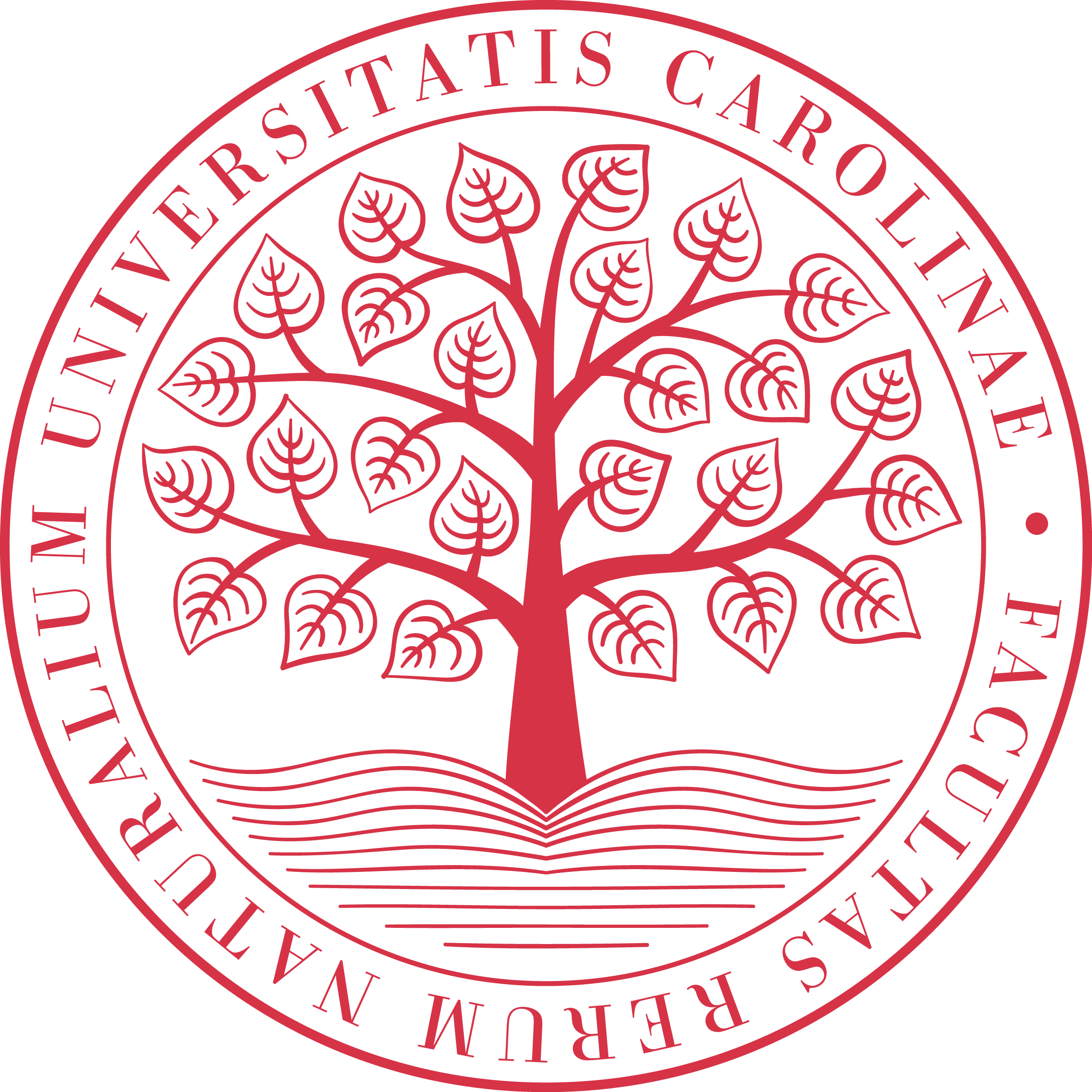
|
Questionnaire for students from abroad at Faculty of ScienceAre you a foreigner student at Charles University in Prague? Tell us something about your needs, and fill the form until December 15th, please. Published Nov 27, 2019 |
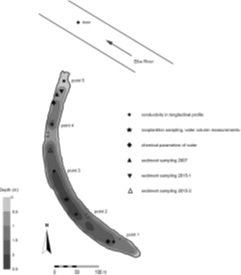
|
Popular Science: Hidden and forgotten?Water is essential for survival, that’s why constant monitoring of this irreplaceable resource is needed. However, water chemistry monitoring is not sufficient. During extreme hydrometeorological events, the remobilization and reactivation of sediments, which often contain very toxic substances, may contaminate stream ecosystems and the environment. Due to environmental disasters in the past, attention is also focused on the Elbe River basin. Petra Havlíková, Dagmar Chalupová, Tomáš Chuman, Miroslav Šobr and Bohumír Janský from the Department of Physical Geography and Geoecology focused on a detailed study of the oxbow lake near the town of Poděbrady, which is connected with the Elbe River. Published Nov 25, 2019 |
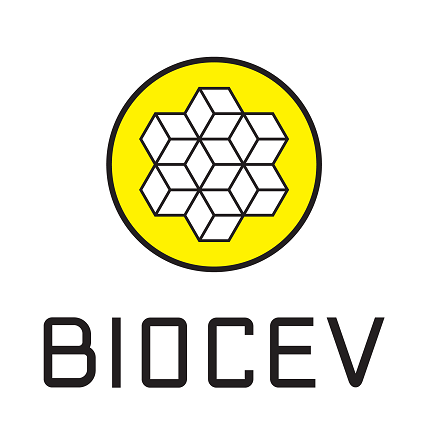
|
BIOCEV: Media training for scientistMedia training can be highly effective in helping you develop the skills to get your message across succinctly and with impact. Workshop is designed for Principal investigators, Postdoctoral researchers, PhD students and other interested parties. December 16th, 2019, 10:00 - 17:00 BIOCEV, Průmyslová 595, Vestec - Red/Green Seminar Rooms. Registration: libuse.vaneckova@natur.cuni.cz (deadline: December 9th) Published Nov 19, 2019 |
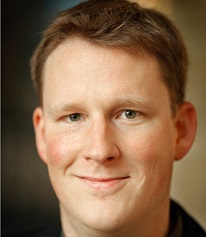
|
BIOCEV: Prof. Jeroen Lammertyn, KU Leuven, Belgium "Advanced microfluidic solutions for life science research and medical diagnostics"Dr. Lammertyn performs fundamental research activities focus on the development of novel bio-molecular detection concepts and miniaturized analysis systems. The applications span a broad range of sectors including medical and food diagnostics. Lecture takes place on Tuesday, November 19th 2019 at 14:00 in the BIOCEV (Main conference hall). All participants are cordially welcome! Published Nov 15, 2019 |
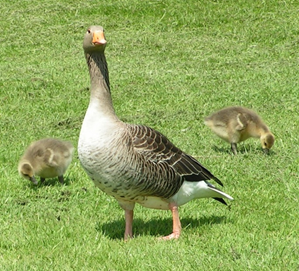
|
Popular Science: Feathers can tell the originRapid changes to natural conditions also cause changes in the behavior of migratory birds. The study of their migration is very important because of their protection and management. Since migratory bird flyways reach many states, international cooperation is needed. Therefore, there is an international project that monitors the movement of the greylag goose (Anser anser), the largest of the waterfowl genus Anser. One of the members and the coordinator of the international project are Michal Podhrázský from Zoo Dvůr Králové and the Department of Zoology of the Faculty of Science, Charles University. Published Nov 04, 2019 |
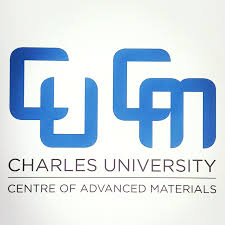
|
CZ-UK Workshop on Nanomaterials took place in KarolinumThe British Embassy in Prague and the Department of Physical and Macromolecular Chemistry of the Faculty of Science at the Charles University organised a CZ-UK workshop on nanomaterials, which was held in Karolinum on October 22-23, 2019. Her Majesty’s Ambassador to the Czech Republic, Mr. Nick Archer MVO, opened the workshop. Published Oct 30, 2019 |
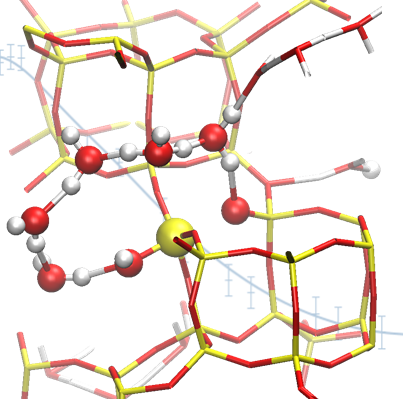
|
Mechanism of zeolite hydrolysis in Nature CommunicationsTheoretical chemists from the Department of Physical and Macromolecular Chemistry (Christopher Heard, Lukáš Grajciar and Petr Nachtigall) investigated the mechanisms of hydrolysis in aluminosilicate zeolite CHA. Their calculations predicted an unexpected high lability of Al-O and Si-O bonds in liquid water at room temperature. These predictions were confirmed by experimental collaborators at the University of St Andrews. This work makes us reconsider the conventional view of zeolites as static, inert materials under mild conditions. Published Oct 18, 2019 |
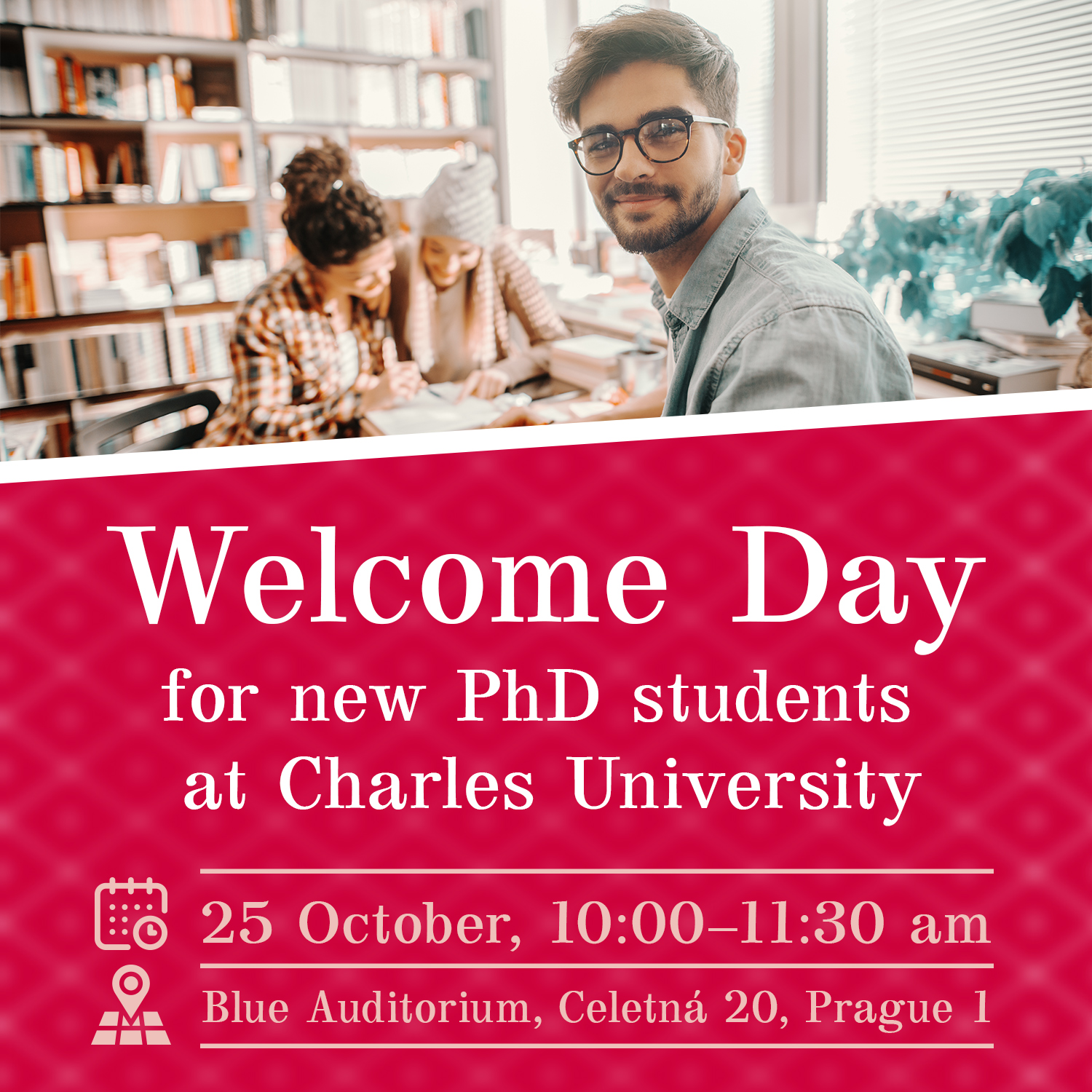
|
Welcome day for new PhD studentsHow to study a PhD? Basic information about the doctoral study, financing research and academic integrity, Optional guided tour through historical Carolinum. 25 October 2019, 10:00–11:30 am. Blue Auditorium, Celetná 20, Prague 1 Published Oct 16, 2019 |
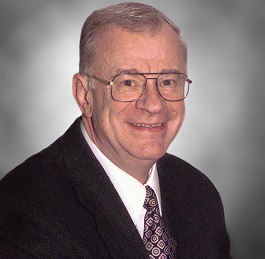
|
Micobion seminary: The long winding road to nitrogen catabolite repression in yeastWe cordially invite you to lecture: The long winding road to nitrogen catabolite represion which will be delivered by Prof. Terrance G. Cooper, Department of Microbiology, Immunology, and Biochemistry, University of Tennessee, Health Sicence Center, Memphis, USA. The lecture takes place on 22th of October at 3 p.m. at the BIOCEV Conference Hall in Vestec. Published Oct 16, 2019 |
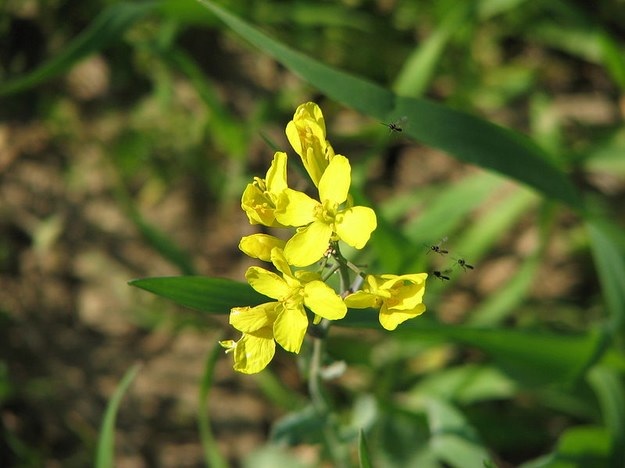
|
Popular Science: Energetic Metabolism of Agriculture in the Czech Republic and Poland after the Fall of the Communist RegimeGlobal processes like climatic changes, growth of the human population and dependence on fossil fuels cause biodiversity loss and the endangerment of whole ecosystems. It is possible that the potential of the biosphere will not be able to satisfy the demands of human production and consumption. Efforts for the sustainability of agricultural production require an increasingly better understanding of energy flow in ecosystems. In agriculture, energy is not only the food foundation, but it is a crucial part in the circulation of elements (esp. carbon) and in the hydrologic cycle. Published Oct 14, 2019 |
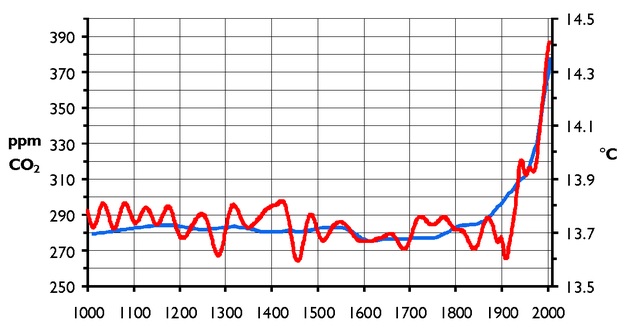
|
Popular Science: How important is Visualisation in Science?In late June, the Second Interdisciplinary Colloquium took place at the Department of History and Philosophy of Science. This year it was aimed at the phenomena of maps and graphs – which concerns any type of scientific work. Published Oct 02, 2019 |
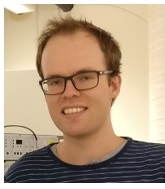
|
Quo Vadis Chemie: Structure determination of nanocrystaline materials using electron diffractionWe cordially invite you to lecture: Structure determination of nanocrystaline materials using electron diffraction which will be delivered by Dr. Stef Smeets from Kavli Institute of Nanoscience Delft (KIND) Department of Bionanosciene Delft University of Technology. The lecture takes place on 23th of September at 3 p.m. at the Lecture Hall CH2, Hlavova 8, Prague 2. Published Sep 17, 2019 |

|
Quo Vadis Chemie: Transitioning Organic Synthesis to a Water World. Faster, Better, Cheaper, & Environmentally ResponsibleWe cordially invite you to lecture: Transitioning Organic Synthesis to a Water World. Faster, Better, Cheaper, & Environmentally Responsible which will be delivered by Prof. Bruce H. Lipshutz from The Institute of Scentific and Industrial Research Osaka University, Japan. The lecture takes place on 24th of September at 2 p.m. at the Lecture Hall CH2, Hlavova 8, Prague 2. Published Sep 17, 2019 |
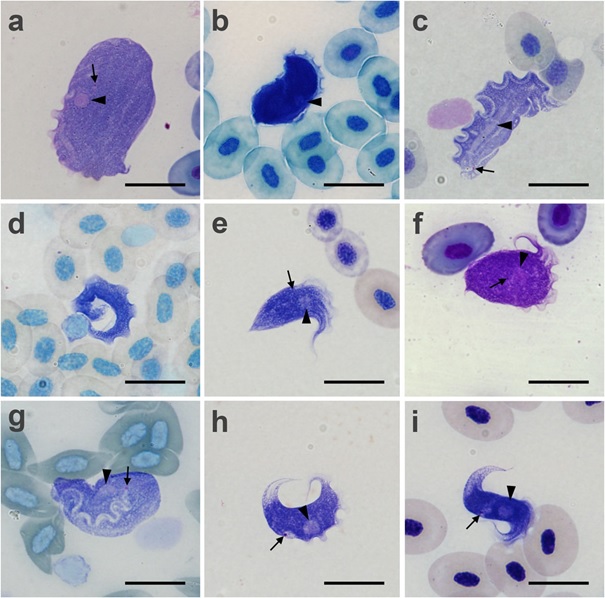
|
Popular Science: Astonishing diversity of trypanosomes in frogsIf you have ever heard about trypanosomes, probably it was in connection with sleeping sickness and Chagas disease, serious tropical illnesses. It is not so well known that the trypanosomes were actually first discovered in frogs. Many of these parasites can be found also in Czech frogs, though they do not cause human diseases and therefore remain generally neglected. An international research team, in which the Charles University was represented by Jan Votýpka from the Department of Parasitology, made an attempt to gain insight into this little-known world. Published Sep 15, 2019 |

|
Popular Science: Do birds in our forests fare well or not?One of the factors responsible for decline in biodiversity is land-use change, which is a result of major socioeconomic changes associated with the advancement of human society. And what about forest management? Does it influence species abundance? And how? These and other questions were studied by an international team of scientists. Jiří Reif from the Institute of Environmental Studies and his colleagues were especially interested in associations between environmental changes, forest management and forest bird abundance. Published Sep 08, 2019 |

|
Junior ERC grant is going to the Botany DepartmentThe awarding of a European Research Council (ERC) grant recognizes research of the highest quality. In the category of junior grants for researchers who received their PhDs within the last seven years, only one was given this year in the Czech Republic. Like last year, it was clinched by the Faculty of Science at Charles University. Botanist Filip Kolář can now count on five years of financial support to investigate the importance of multiplying genetic information (polyploidization) in plants. The results of his work will help in understanding evolutionary mechanisms in plants and may even be useful in breeding. Published Sep 04, 2019 |

|
Popular Science: 104.6 km from the confluence, or what is the water quality of Slapy Reservoir?In recent decades, there has been a significant improvement in the surface water quality of the main streams of the Czech Republic, mainly because of the decrease of heavy industry and due to the construction of wastewater treatment plants in municipalities over 2000 inhabitants. However, the surface water quality of small rivers is still very low, because they are often found in agricultural areas, which are still affected by fertilizers and other pollutants and many of them also do not yet have wastewater treatment plants. One of these is the Mastník stream in the Central Bohemian Region, which flows into the Vltava River’s Slapy Reservoir. Luboš Mrkva and Bohumír Janský from the Department of Physical Geography and Geoecology at our Faculty have focused on the development and current state of the water quality of this important water body. Published Sep 01, 2019 |
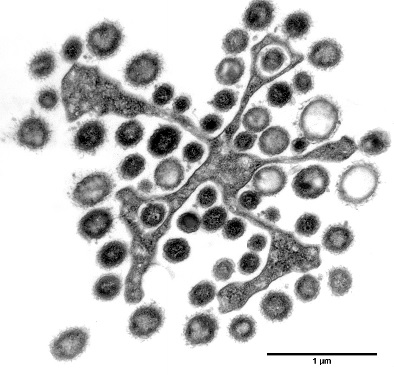
|
Researchers reveal the metabolic capacity of a termite gut protist and its associated bacteria using single-cell (meta)genomics.Parasitology department´s scientists (Sebastian Treitli a Vladimír Hampl) in collaboration with researchers from University of British Columbia, sequenced the genomes of an isolated individual cell of the protist, Streblomastix strix, and at least eight different species or strains of bacterial symbionts which cover its surface. They used this genomic data to reconstruct the metabolism within this complex symbiotic system. Published Aug 29, 2019 |
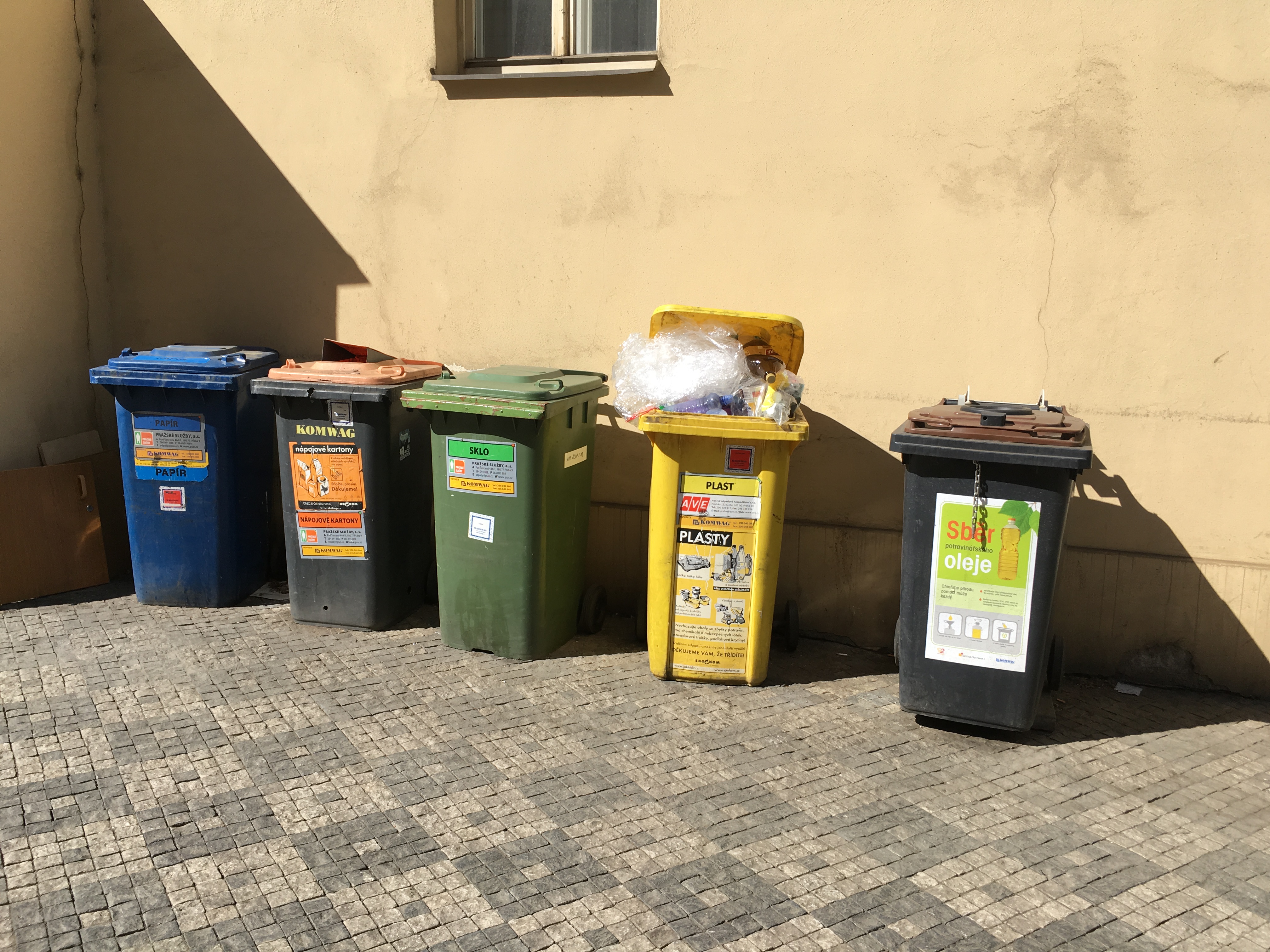
|
Popular Science: Judging people by their dustbinsPerhaps everyone has some experience with shopping. Just like shopping carts differ, so does the content of the dustbins. Although Czechia occupies top places in waste sorting at present, lots of things must still be improved in waste generation. The knowledge of the population’s differing patterns of behaviour may provide a vital help in this sphere. Researchers from the Department of demography and geodemography Kristýna Rybová, Boris Burcin and Tomáš Kučera, in cooperation with another three scientific centres in Czechia, focused on the research into socio-demographic factors and their influence on waste generation. Published Aug 19, 2019 |

|
Popular Science: Czechs not willing to pay extra for water cleaned of pharmaceuticalsThanks to the rapid development of analytical laboratory methods, we can now detect the presence of trace concentrations of pharmaceuticals and personal care products in water. The wastewater treatment plants currently in use are, however, often not equipped to completely remove these substances. Zbyněk Hrkal and other scientists from the T. G. Masaryk Water Research Institute and the Charles University Faculty of Science investigated how much Czechs are willing to pay for cleaner water. Published Aug 07, 2019 |